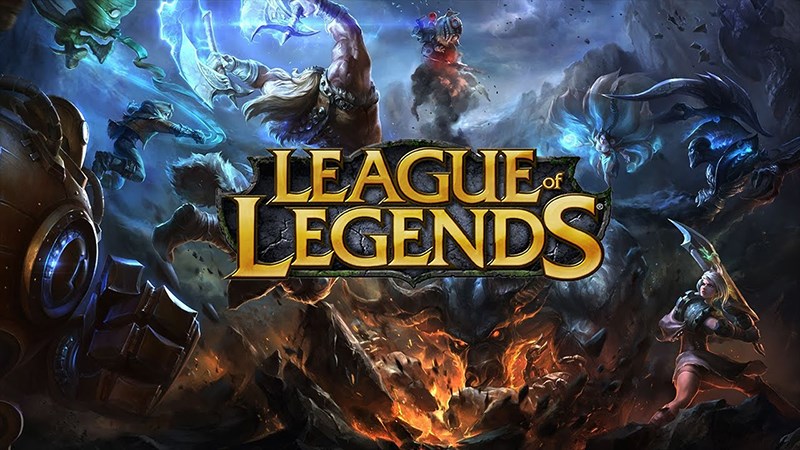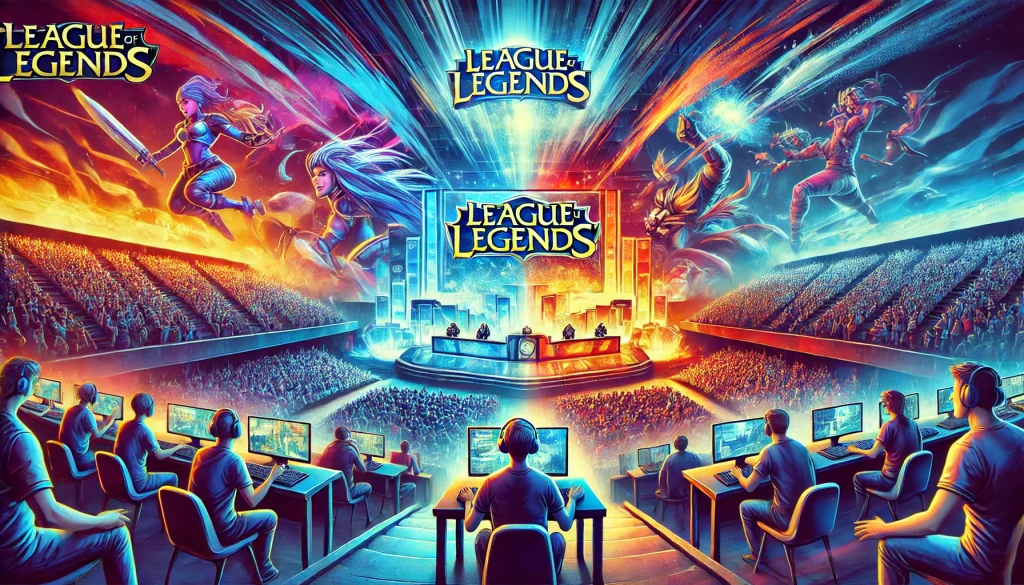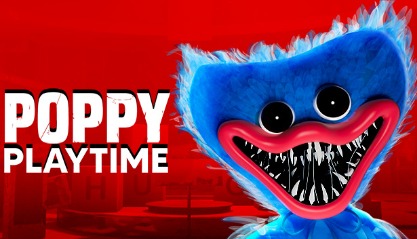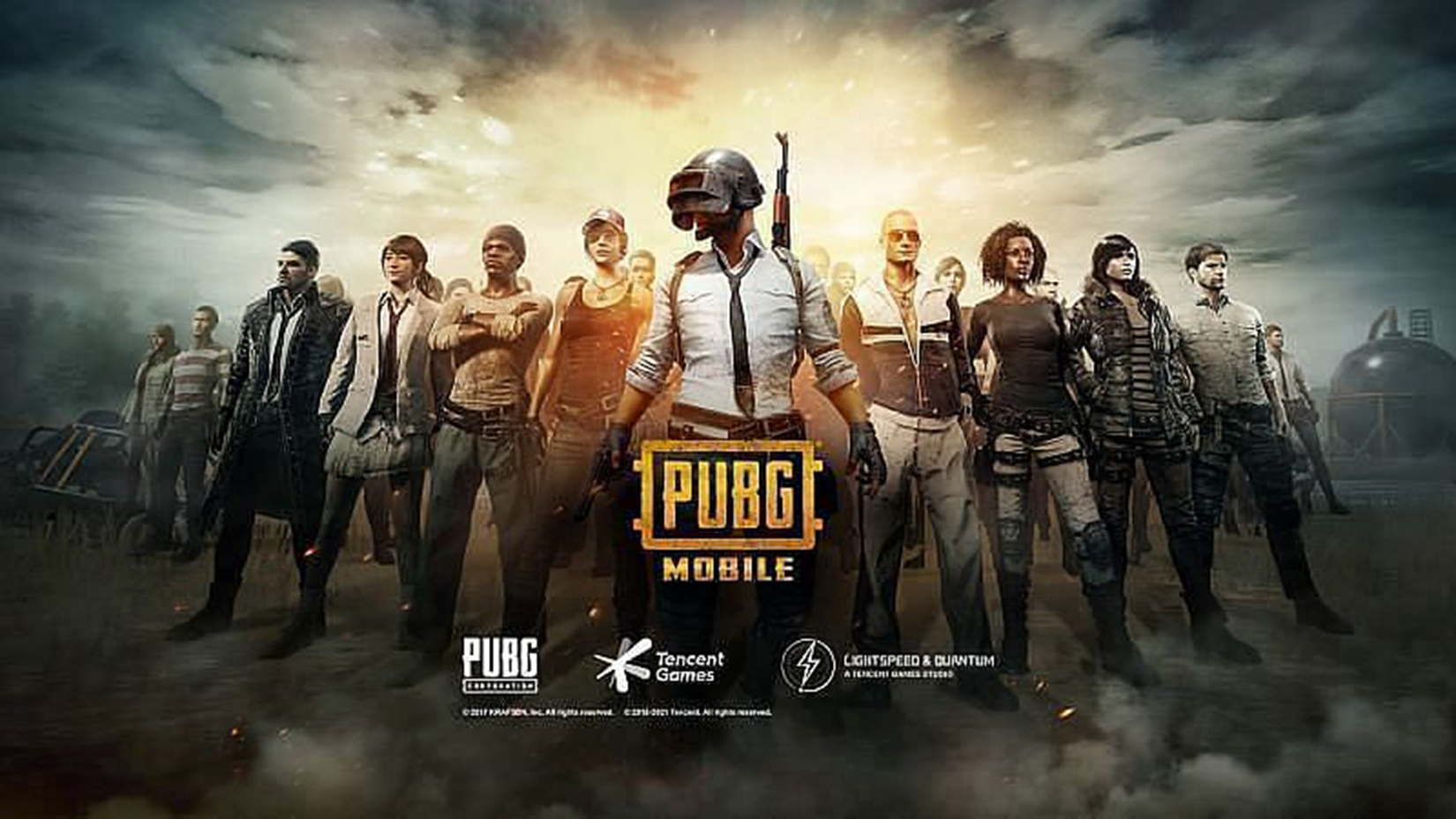
League of Legends
All trademarks belong to their respective owners.
Advertisement
Popular Now
Introduction
 Launched in 2009, League of Legends (LoL) has since evolved into one of the most popular and influential games in the world. Developed by Riot Games, LoL has set the standard for Multiplayer Online Battle Arena (MOBA) games and become a major force in the esports industry. With millions of active players, a vibrant esports ecosystem, and an ever-expanding universe of champions, League of Legends is not just a game but a cultural phenomenon. In this article, we’ll explore the game's history, its impact on esports, gameplay mechanics, and its influence on the global gaming community.
Launched in 2009, League of Legends (LoL) has since evolved into one of the most popular and influential games in the world. Developed by Riot Games, LoL has set the standard for Multiplayer Online Battle Arena (MOBA) games and become a major force in the esports industry. With millions of active players, a vibrant esports ecosystem, and an ever-expanding universe of champions, League of Legends is not just a game but a cultural phenomenon. In this article, we’ll explore the game's history, its impact on esports, gameplay mechanics, and its influence on the global gaming community.
The Origins of League of Legends League of Legends was created by Riot Games and released in October 2009, based on the popular Warcraft III mod, Defense of the Ancients (DotA). Riot Games envisioned a game that could combine the strategic depth of real-time strategy games with fast-paced action gameplay. From the start, LoL focused on being accessible to casual players while maintaining the complexity that would appeal to competitive gamers. Within the first year of release, League of Legends gained a sizable following, with players flocking to its team-based gameplay and free-to-play model. Riot’s commitment to regular updates, community engagement, and balancing the game helped it quickly establish a reputation as one of the best multiplayer games available. This early success laid the foundation for LoL’s future as a dominant force in the gaming world.
The Role of Esports in League of Legends' Success One of the key factors behind the enduring success of League of Legends has been its close connection to the esports industry. Riot Games recognized the potential for competitive play early on and helped to establish a robust esports infrastructure for the game. The first League of Legends World Championship took place in 2011, and since then, the competition has grown in scale and prestige.
The World Championship, along with regional leagues like the League of Legends Championship Series (LCS), League of Legends Pro League (LPL), and others, has made League of Legends the most-watched esports event globally. Professional teams, coaches, analysts, and streamers have turned League of Legends into an entertainment powerhouse, drawing millions of viewers every year and creating a new breed of esports celebrity.
One of the key factors behind the enduring success of League of Legends has been its close connection to the esports industry. Riot Games recognized the potential for competitive play early on and helped to establish a robust esports infrastructure for the game. The first League of Legends World Championship took place in 2011, and since then, the competition has grown in scale and prestige.
The World Championship, along with regional leagues like the League of Legends Championship Series (LCS), League of Legends Pro League (LPL), and others, has made League of Legends the most-watched esports event globally. Professional teams, coaches, analysts, and streamers have turned League of Legends into an entertainment powerhouse, drawing millions of viewers every year and creating a new breed of esports celebrity.
Gameplay Mechanics and the Core of League of Legends At its core, League of Legends is a team-based strategy game where players take on the role of powerful champions and fight to destroy the enemy team’s Nexus, the heart of their base. Each player controls a champion, each with its own unique abilities and playstyle. The game is played in matches that typically last between 20 to 40 minutes, depending on the skill level of the players. League of Legends is known for its depth, where teamwork, communication, and individual skill are all equally important. Players must manage resources like gold and experience, buy items to improve their champions, and make strategic decisions in real-time. The map features three lanes and a jungle, and players must control objectives such as turrets, dragons, and the Baron Nashor to secure a victory.
The Significance of Champions in League of Legends One of the most exciting aspects of League of Legends is the diversity of champions available. As of 2024, there are over 140 champions in the game, each with its own unique abilities, strengths, and weaknesses. This variety allows players to find champions that fit their preferred playstyle, whether they prefer playing as a tanky support, an agile assassin, or a powerful mage. Champion design is a key factor in keeping the game fresh and dynamic. Riot Games frequently releases new champions and reworks older ones to keep the meta (the most effective strategies and champion picks) in constant flux. Champion balance is essential in maintaining fairness and ensuring that no single champion dominates the game. Some champions are better suited for certain roles, such as: Common Champion Roles in League of Legends <ul> <li>Marksman: Ranged champions who focus on dealing damage through basic attacks (e.g., Jinx, Kai’Sa).</li> <li>Tank: Durable champions who absorb damage for their team (e.g., Malphite, Leona).</li> <li>Assassin: Champions who excel at quickly eliminating high-value targets (e.g., Zed, Talon).</li> <li>Support: Champions who assist teammates with healing, shielding, or crowd control (e.g., Thresh, Lulu).</li> </ul>
The Evolution of Skins and Cosmetic Items One of the most popular features in League of Legends is its extensive cosmetic system. Skins, which alter the appearance of champions, have become a huge part of the game's culture. Riot Games releases new skins regularly, often tied to special events, holidays, or new champion releases. In addition to skins, other cosmetic items like ward skins, emotes, and chromas (color variations of skins) allow players to personalize their experience. Skins have even become a form of social currency, with rare or limited-edition skins being highly sought after by players. The in-game store offers these items, and players can purchase them through Riot’s microtransaction system. Popular Skin Themes in League of Legends <ul> <li>Project: A futuristic, cyberpunk-themed skin line.</li> <li>Star Guardian: A magical girl aesthetic inspired by anime.</li> <li>Arcade: A retro gaming theme with pixelated champions.</li> <li>Battle Bunny: A fun and whimsical theme based on anthropomorphic animals.</li> </ul>
The Community and Social Impact of League of Legends Since its inception, League of Legends has fostered a vibrant and diverse community. Players from around the world connect through in-game interactions, online forums, social media, and streaming platforms. League of Legends has a massive presence on platforms like Twitch, where professional players, streamers, and fans gather to watch gameplay, discuss strategies, and share highlights. Beyond just gameplay, the League of Legends community has also given rise to fan art, fan fiction, and even cosplay, further solidifying the game’s cultural impact. Riot Games has supported this creativity by hosting events like the annual League of Legends World Championship, where players from all over the globe can come together to celebrate their love for the game.
League of Legends' Regular Updates and Meta Changes To maintain balance and keep the game engaging, Riot Games frequently releases patches and updates to League of Legends. These updates often include changes to champions, items, and the overall game mechanics. The “meta,” or the most effective strategies and champion compositions, changes with every patch. This constant evolution requires players to stay on top of updates, learning new strategies and adapting to new challenges. Meta changes, such as reworks of popular champions or item adjustments, often shake up the competitive landscape, forcing players to adapt to new tactics. Riot Games’ commitment to maintaining balance is one of the reasons League of Legends has remained so popular for over a decade.
The Future of League of Legends Looking ahead, the future of League of Legends seems bright. Riot Games continues to introduce new content, such as champions, skins, and game modes, to keep the game fresh. Moreover, the growing global esports scene around LoL ensures that the game will continue to be a major player in the esports industry for years to come. As new technology emerges, such as virtual reality and cloud gaming, Riot Games is expected to explore new ways to enhance the League of Legends experience. With a dedicated fan base, ongoing updates, and a commitment to esports, the game is poised to remain at the forefront of the gaming world.
Conclusion League of Legends has proven to be much more than just a game; it has become a global phenomenon, influencing gaming culture, esports, and the way we experience multiplayer games. Through regular updates, a diverse roster of champions, a thriving esports scene, and a passionate community, Riot Games has ensured that LoL remains relevant, exciting, and ever-evolving. Whether you're a casual player, an aspiring pro, or a fan of esports, League of Legends continues to offer something for everyone, ensuring its place in the gaming world for years to come.
 Launched in 2009, League of Legends (LoL) has since evolved into one of the most popular and influential games in the world. Developed by Riot Games, LoL has set the standard for Multiplayer Online Battle Arena (MOBA) games and become a major force in the esports industry. With millions of active players, a vibrant esports ecosystem, and an ever-expanding universe of champions, League of Legends is not just a game but a cultural phenomenon. In this article, we’ll explore the game's history, its impact on esports, gameplay mechanics, and its influence on the global gaming community.
Launched in 2009, League of Legends (LoL) has since evolved into one of the most popular and influential games in the world. Developed by Riot Games, LoL has set the standard for Multiplayer Online Battle Arena (MOBA) games and become a major force in the esports industry. With millions of active players, a vibrant esports ecosystem, and an ever-expanding universe of champions, League of Legends is not just a game but a cultural phenomenon. In this article, we’ll explore the game's history, its impact on esports, gameplay mechanics, and its influence on the global gaming community.
The Origins of League of Legends League of Legends was created by Riot Games and released in October 2009, based on the popular Warcraft III mod, Defense of the Ancients (DotA). Riot Games envisioned a game that could combine the strategic depth of real-time strategy games with fast-paced action gameplay. From the start, LoL focused on being accessible to casual players while maintaining the complexity that would appeal to competitive gamers. Within the first year of release, League of Legends gained a sizable following, with players flocking to its team-based gameplay and free-to-play model. Riot’s commitment to regular updates, community engagement, and balancing the game helped it quickly establish a reputation as one of the best multiplayer games available. This early success laid the foundation for LoL’s future as a dominant force in the gaming world.
The Role of Esports in League of Legends' Success
 One of the key factors behind the enduring success of League of Legends has been its close connection to the esports industry. Riot Games recognized the potential for competitive play early on and helped to establish a robust esports infrastructure for the game. The first League of Legends World Championship took place in 2011, and since then, the competition has grown in scale and prestige.
The World Championship, along with regional leagues like the League of Legends Championship Series (LCS), League of Legends Pro League (LPL), and others, has made League of Legends the most-watched esports event globally. Professional teams, coaches, analysts, and streamers have turned League of Legends into an entertainment powerhouse, drawing millions of viewers every year and creating a new breed of esports celebrity.
One of the key factors behind the enduring success of League of Legends has been its close connection to the esports industry. Riot Games recognized the potential for competitive play early on and helped to establish a robust esports infrastructure for the game. The first League of Legends World Championship took place in 2011, and since then, the competition has grown in scale and prestige.
The World Championship, along with regional leagues like the League of Legends Championship Series (LCS), League of Legends Pro League (LPL), and others, has made League of Legends the most-watched esports event globally. Professional teams, coaches, analysts, and streamers have turned League of Legends into an entertainment powerhouse, drawing millions of viewers every year and creating a new breed of esports celebrity.
Gameplay Mechanics and the Core of League of Legends At its core, League of Legends is a team-based strategy game where players take on the role of powerful champions and fight to destroy the enemy team’s Nexus, the heart of their base. Each player controls a champion, each with its own unique abilities and playstyle. The game is played in matches that typically last between 20 to 40 minutes, depending on the skill level of the players. League of Legends is known for its depth, where teamwork, communication, and individual skill are all equally important. Players must manage resources like gold and experience, buy items to improve their champions, and make strategic decisions in real-time. The map features three lanes and a jungle, and players must control objectives such as turrets, dragons, and the Baron Nashor to secure a victory.
The Significance of Champions in League of Legends One of the most exciting aspects of League of Legends is the diversity of champions available. As of 2024, there are over 140 champions in the game, each with its own unique abilities, strengths, and weaknesses. This variety allows players to find champions that fit their preferred playstyle, whether they prefer playing as a tanky support, an agile assassin, or a powerful mage. Champion design is a key factor in keeping the game fresh and dynamic. Riot Games frequently releases new champions and reworks older ones to keep the meta (the most effective strategies and champion picks) in constant flux. Champion balance is essential in maintaining fairness and ensuring that no single champion dominates the game. Some champions are better suited for certain roles, such as: Common Champion Roles in League of Legends <ul> <li>Marksman: Ranged champions who focus on dealing damage through basic attacks (e.g., Jinx, Kai’Sa).</li> <li>Tank: Durable champions who absorb damage for their team (e.g., Malphite, Leona).</li> <li>Assassin: Champions who excel at quickly eliminating high-value targets (e.g., Zed, Talon).</li> <li>Support: Champions who assist teammates with healing, shielding, or crowd control (e.g., Thresh, Lulu).</li> </ul>
The Evolution of Skins and Cosmetic Items One of the most popular features in League of Legends is its extensive cosmetic system. Skins, which alter the appearance of champions, have become a huge part of the game's culture. Riot Games releases new skins regularly, often tied to special events, holidays, or new champion releases. In addition to skins, other cosmetic items like ward skins, emotes, and chromas (color variations of skins) allow players to personalize their experience. Skins have even become a form of social currency, with rare or limited-edition skins being highly sought after by players. The in-game store offers these items, and players can purchase them through Riot’s microtransaction system. Popular Skin Themes in League of Legends <ul> <li>Project: A futuristic, cyberpunk-themed skin line.</li> <li>Star Guardian: A magical girl aesthetic inspired by anime.</li> <li>Arcade: A retro gaming theme with pixelated champions.</li> <li>Battle Bunny: A fun and whimsical theme based on anthropomorphic animals.</li> </ul>
The Community and Social Impact of League of Legends Since its inception, League of Legends has fostered a vibrant and diverse community. Players from around the world connect through in-game interactions, online forums, social media, and streaming platforms. League of Legends has a massive presence on platforms like Twitch, where professional players, streamers, and fans gather to watch gameplay, discuss strategies, and share highlights. Beyond just gameplay, the League of Legends community has also given rise to fan art, fan fiction, and even cosplay, further solidifying the game’s cultural impact. Riot Games has supported this creativity by hosting events like the annual League of Legends World Championship, where players from all over the globe can come together to celebrate their love for the game.
League of Legends' Regular Updates and Meta Changes To maintain balance and keep the game engaging, Riot Games frequently releases patches and updates to League of Legends. These updates often include changes to champions, items, and the overall game mechanics. The “meta,” or the most effective strategies and champion compositions, changes with every patch. This constant evolution requires players to stay on top of updates, learning new strategies and adapting to new challenges. Meta changes, such as reworks of popular champions or item adjustments, often shake up the competitive landscape, forcing players to adapt to new tactics. Riot Games’ commitment to maintaining balance is one of the reasons League of Legends has remained so popular for over a decade.
The Future of League of Legends Looking ahead, the future of League of Legends seems bright. Riot Games continues to introduce new content, such as champions, skins, and game modes, to keep the game fresh. Moreover, the growing global esports scene around LoL ensures that the game will continue to be a major player in the esports industry for years to come. As new technology emerges, such as virtual reality and cloud gaming, Riot Games is expected to explore new ways to enhance the League of Legends experience. With a dedicated fan base, ongoing updates, and a commitment to esports, the game is poised to remain at the forefront of the gaming world.
Conclusion League of Legends has proven to be much more than just a game; it has become a global phenomenon, influencing gaming culture, esports, and the way we experience multiplayer games. Through regular updates, a diverse roster of champions, a thriving esports scene, and a passionate community, Riot Games has ensured that LoL remains relevant, exciting, and ever-evolving. Whether you're a casual player, an aspiring pro, or a fan of esports, League of Legends continues to offer something for everyone, ensuring its place in the gaming world for years to come.






















